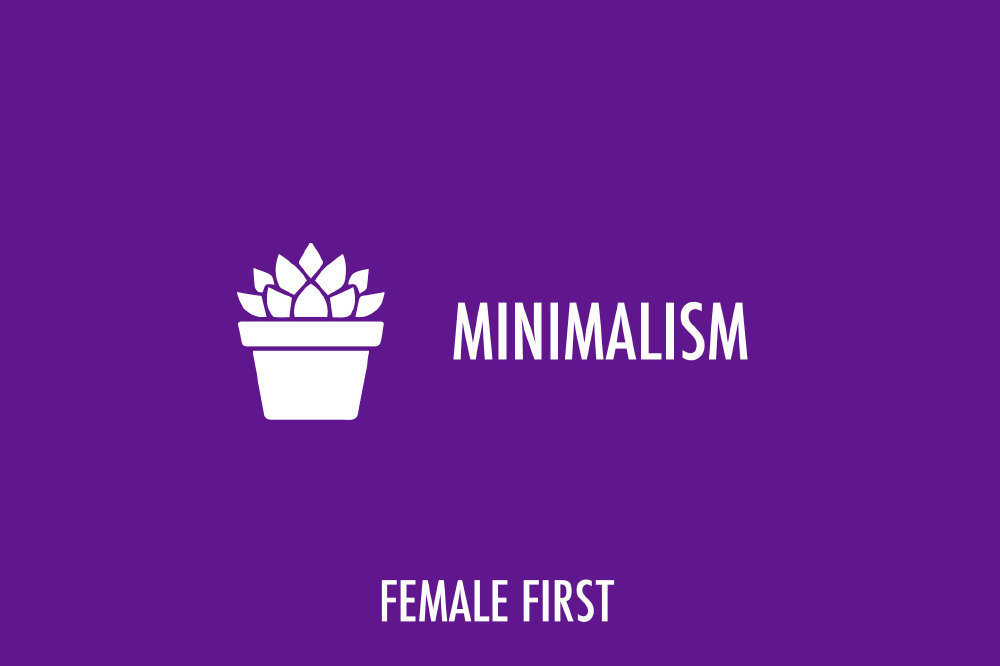Dr Linda Papadopoulos is a psychologist and member of SmileDirectClub’s Confidence Council so we caught up with her to talk about the link between minimalism and confidence as we see a new wave of people seeking out a meaningful life with less stuff.

Dr Linda Papadopoulos
Why do people often lack the confidence to declutter their space and their life of the things that aren't serving them?
This is about the association we place on material things and at an extreme, it can become hoarding. We can sometimes assign too much emotional connection to an object so we project onto it, for example a wonderful memory, so it becomes difficult to throw it away. While it's good to be surrounded by objects we like, we can't keep hold of everything. It's important not to become overly attached to too many material things.
Does this mean that minimalists are naturally confident people or is this a common misconception?
This is not solely about confidence, minimalists also want order and clarity in their lives and they are probably good at maintaining that order. They value their space and the clarity it brings them.
How can confidence increase as someone begins to clear their home of unwanted possessions?
Decluttering can be about taking a life inventory, we take stock of what we need and what we don't need. It's an important psychological process which can lead us to evaluate how we've changed and how we engage with our surroundings. Ultimately, this can increase not just confidence, but also well-being.
Lockdown was an ideal opportunity to organise and purge the home of things, however at the other end of the spectrum how did spending so much time at home affect people's abilities to keep on top of their items?
This was very much dependent on where we spent lockdown. There were big lifestyle differences between people who had lots of space with time to declutter and those living with three children in a small home. Lockdown became about trying to do our best within our circumstances and what we saw was people prioritising, that may have been teaching children or making some time for outside space, for some people it was the need to declutter.
MORE: Dr Linda Papadopoulos discusses the impact music has on our relationships
To what extent do you think the minimalist movement is a result of people wanting to be more confident in their values and intentions for their life through an aesthetic?
The minimalist movement is about an aesthetic, we see a lot more of it now and perhaps it has become easier to achieve. Once achieved, there is a sense that a clear room can bring about a clear mind.
For someone who is overwhelmed by their things, how can they slowly build up their confidence towards having a home that serves them rather than one that fills them with dread?
This is a great question! You need to start off slowly, don't try to overhaul your whole home, begin with a desk drawer and ask yourself how long it has been since you used a particular item. Maybe it's time to give it away and think about it going to a new home which can be cathartic. As with any relationship, the importance is about the value it brings to our lives, it's not about how long we've had it.
When it comes to decluttering people, where should a person begin with this process and how should it be done without offending the other party?
I like the idea of life being like a bench which our friends can sit on, but there is only so much room. We only have so much bandwidth to engage meaningfully with people. This is not about cutting people out, it's about upgrading or downgrading relationships. There are certain people who we will message everyday and with others we may go for weeks without contact, we still love them but it's a different intensity. Sometimes we need to look at what stage we're at in our life and think about whether a person is adding value to our lives and if we're adding it to theirs, this is the meaning of healthy friendships.
In what ways can excess things impact on someone's confidence?
If we assign too much emotional importance to material things it may start to impact our confidence because we will be relying upon them to gratify us which isn't sustainable.
Does clutter encourage negative thinking patterns?
Some people think it does and when a room is very cluttered it can be difficult to focus. The general rule is that a sense of order can help most people.

Tagged in Minimalism Minimalist

